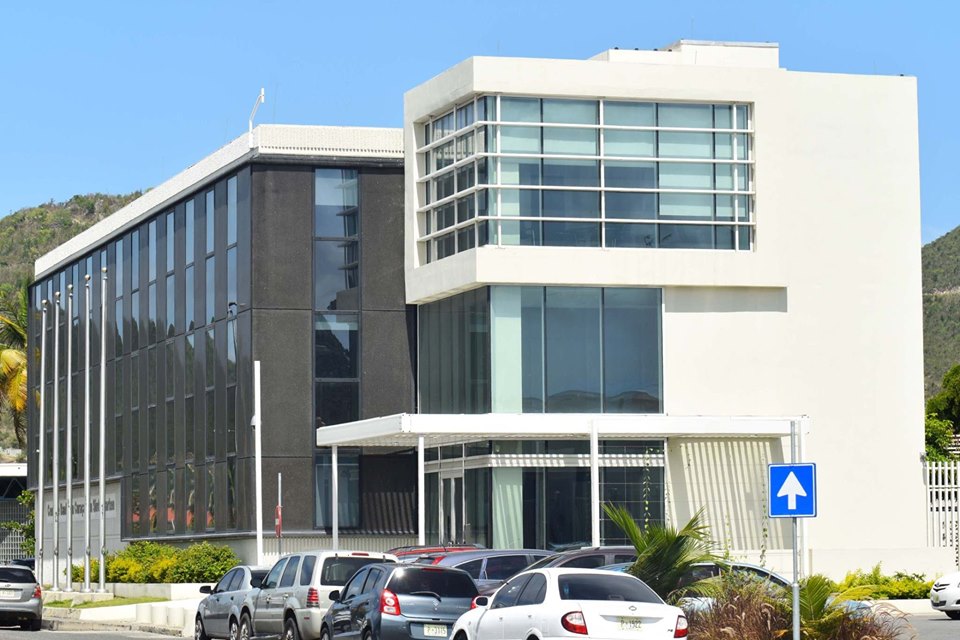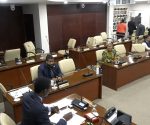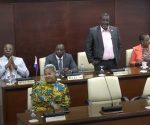CBCS Annual Report review: Central Bank on balanced budget rule (Part 1)

Consolidation is crucial at a calibrated pace
WILLEMSTAD/PHILIPSBURG – Acting president of the Centrale Bank van Curaçao en Sint Maarten Bob Traa stated in the Bank’s 2018 Annual Report that one of the challenges the two countries face is to manage fiscal consolidation, while experiencing slow or negative growth.
The Kingdom Law of Financial Supervision was enacted in 2010 to ensure sound public finances in the new countries of Curaçao and Sint Maarten. This law includes a balanced budget rule for current revenues and expenditures. “Balancing the current budget is important and fiscal policy needs to be appropriately paced,” Traa explained in the report. “To achieve a balanced current budget, the government needs to reduce spending and/or increase taxation, thereby imparting a negative fiscal impulse on activity. The valuable positive effects of regained confidence on activity may require some time to take root.”
![]()
“Furthermore, the quality and the balance of intended measures is also important. In the short term, policy includes measures on the revenue side of the budget, such as improving collection of already legislated taxes,” Traa pointed out. “At the same time, fiscal adjustments tend to be more durable if these include sustainable expenditure cuts. Therefore, the government should explore medium term fiscal adjustment that provides efficient government services while slowing expenditure pressures, so that the need for distortive taxation is minimized,” the interim central bank president advised.
Because of the damage to the economy caused by Hurricane Irma in 2017, Sint Maarten and the Netherlands agreed to use the escape clause in the Kingdom Law on Financial Supervision of Curaçao and Sint Maarten that allows for temporary deviations from the balanced current budget rule in case of major shocks. “While this provides welcome short-term relief, the government of Sint Maarten needs to take measures to ensure the financial sustainability of the social insurances, including increasing the retirement age, which are imparting a growing impact on fiscal sustainability,” Traa said.
The acting central bank president added that both countries will benefit also from improving their budget management procedures, i.e., the drafting, executing and measuring, and auditing the budget, to ensure the effective control of the public finances. “The availability and quality of data is key to assess budget implementation through reporting and auditing but also for fiscal and macroeconomic diagnostics and policymaking. Besides fiscal data, there is also a need for improvement of real sector and social indicators. Therefore, the authorities need to make the necessary resources available to improve the statistical capabilities of the countries. Efforts should be made to increase the awareness of the importance of data across all sectors of society,” Traa concluded.
The complete text of the Report of the President and the Bank’s 2018 Annual Report can be viewed on the Bank’s website at www.centralbank.cw under the Publications section.
Related articles:
Annual Report 2018 – Press Release Central Bank on balanced budget rule – Consolidation is crucial at a calibrated pace
Annual Report 2018 – Press Release Curaçao and Sint Maarten economies contract – Circumstances challenging in 2018
Annual Report 2018 – Press Release CBCS on decline in official reserves – Sound policy response needed
Willemstad, August 28, 2019 CENTRALE BANK VAN CURACAO EN SINT MAARTEN























